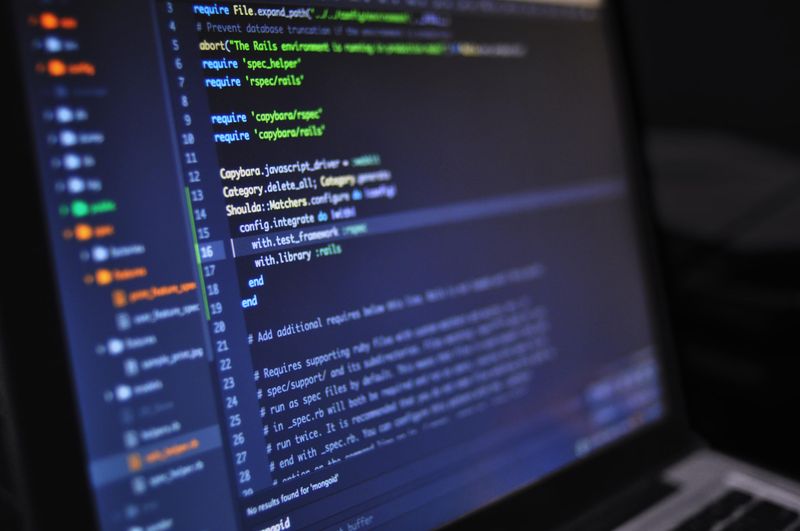Privacy Watchdog Recommends Court Approval for FBI Searches of Spy Data
Introduction
The majority of the Privacy and Civil Liberties Oversight Board (PCLOB), a presidentially appointed privacy watchdog, has recommended in a report that Congress overhaul a controversial surveillance law to require court approval for searches of data belonging to U.S. persons. This recommendation has put the PCLOB at odds with the White House, which has argued that the law is essential to national security. The report also highlights the concerns of civil liberties advocates who argue that the law grants too much power to the government and allows for the collection of data belonging to U.S. persons.
The Controversial Surveillance Law: Section 702
The surveillance law in question is Section 702 of the Foreign Intelligence Surveillance Act (FISA), which allows intelligence agencies to collect the communications of non-U.S. persons abroad whose communications transit U.S. telecommunications systems. Proponents argue that this tool is essential for combating cyberattacks and addressing the fentanyl crisis. However, civil liberties advocates argue that the law is often used to collect data on U.S. persons, thus infringing upon privacy rights.
The Recommendation for Court Approval
The PCLOB’s report recommends that the Foreign Intelligence Surveillance Court (FISC) should require court approval for searches of data collected under Section 702 that belong to U.S. persons. Currently, the FISC reviews compliance with search standards after the searches are carried out. Requiring court approval beforehand would likely reduce the amount of U.S. person data available to the FBI under Section 702. The report also suggests two exemptions: one for searches related to victims and another for searches with victim consent, specifically addressing concerns about investigating ransomware attacks.
Deep Divisions and Sharp Dissent
The report was passed along a 3-2 vote, highlighting a deep divide within the PCLOB. The two Republican members sharply dissented from the report, including the recommendation for court approval. They argue that the recommendation is not supported by evidence and is not in line with the law. However, despite their disagreement, they both emphasized the value of the Section 702 program and the need for its renewal.
Concerns About Misuse and Reform
The FBI’s well-documented misuse of data collected through Section 702 has drawn criticism and calls for significant reforms. In 2020 and 2021, more than 278,000 violations of rules for accessing FISA intelligence were reported, including the use of Section 702 intelligence against Black Lives Matter protestors and January 6 participants. Requiring court approval for searches could potentially limit such misuse.
Philosophical Debate on Pre-Authorization
The debate over reforming Section 702 centers around whether to require pre-authorization for searching data collected under the law. Some members of Congress and civil liberties advocates support a warrant requirement with probable cause for queries on U.S. persons data, which goes beyond the PCLOB’s recommendation. The intelligence community and White House officials argue that a warrant requirement would be detrimental to national security. The White House supports internal FBI reforms to address abuse instead of a warrant requirement.
Recommendations and Potential Impact
The PCLOB report includes other recommendations such as the examination of methods to estimate the collection of U.S. persons data by the National Security Agency (NSA) and the codification of White House executive orders outlining legitimate objectives for signals intelligence collection. The report also calls for reforms at the FBI, including training and additional compliance review. The dissenting members of the board suggest enacting a criminal statute for leaking protected Section 702 data and adopting new rules to protect against misuse for political purposes.
Conclusion and Advice
As the deadline for Congress to decide whether to renew the surveillance authority approaches, the PCLOB’s report will undoubtedly shape the debates on this issue. The report’s recommendations for court approval for searches of spy data and its highlighting of concerns about misuse and abuses of power contribute to the ongoing discussions on privacy and national security. While the report addresses some of the concerns raised by civil liberties advocates, the philosophical debate over the need for a warrant requirement remains unresolved.
It is clear that balancing national security and privacy rights is a complex and ongoing discussion, with significant implications for the fundamental principles of democracy and individual liberties. As individuals and lawmakers, it is essential to consider the potential consequences of granting expansive surveillance powers to the government. Striking the right balance between security and privacy requires thoughtful deliberation, strong oversight mechanisms, and comprehensive reforms to prevent abuses of power.
Moving forward, Congress should carefully consider the PCLOB’s recommendations and engage in a robust debate on the future of surveillance laws. Transparency, public trust, and respect for individuals’ privacy rights should be at the forefront of such discussions. Ultimately, the government must ensure that any surveillance programs are effective, accountable, and respectful of civil liberties, as this will be crucial in maintaining the trust of the citizens and safeguarding democracy.

<< photo by Markus Winkler >>
The image is for illustrative purposes only and does not depict the actual situation.




